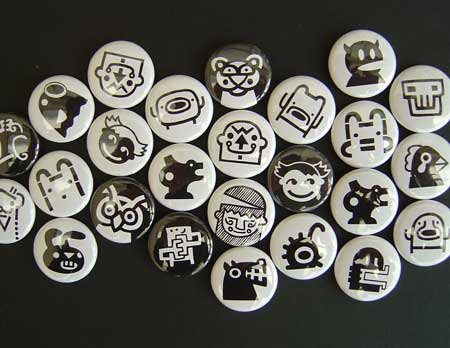 |
| Flickr: What What |
Interestingly collecting behavior gets triggered from the age of 9 or a bit before. It's an emerging form of behavior in the concrete operational stage of human development.The brain is developing rapidly around this age. Collecting fits the demand for stimuli very well. First of all it stimulates memory strategies of organizing, kids can rearrange their marbles in hundreds of different categories. The ability of selectivity developing, by discerning one collection piece from others. Collecting certain tokens also increases control of cognitive processes by training to ignore distractions. It's quite a feat to select a blue cat eye marble from a pile of mixed ones. Even at later stages of life this may be quite interesting, Lego-holics seem to keep selecting and rearranging the cubes. What about the hoby clock-maker? Collecting parts of machines just add layers of complexity to overcome.
So collecting badges can be much more than just collecting dull pictures, they can stimulate development of several kinds of behavior.
Literature
Bukatko, D. (2007). Child and adolescent development: A chronological approach. Houghton Mifflin College Div.
No comments:
Post a Comment